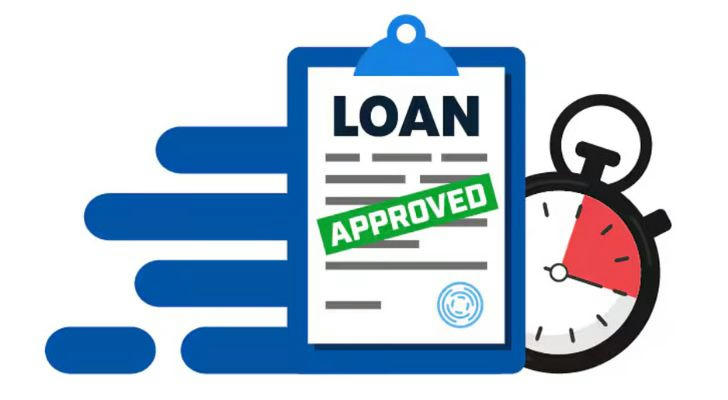Getting a Legit Personal Loan in Canada: A Simple, Honest Guide
Looking for a personal loan in Canada? Whether you need help with bills, want to pay off credit cards, or cover a one-time expense, it’s important to know what’s real — and what’s not.

Here’s a simple breakdown of how to get a legit, licensed personal loan without falling for scams or getting trapped in bad deals.
1. ✅ What’s a Personal Loan (and What It’s Not)
A personal loan gives you a lump sum of money, which you pay back monthly — with interest. It’s not a grant, a payday advance, or some secret offer on social media. Real loans come with paperwork and real terms.
Most people use them for:
- Debt consolidation
- Emergency repairs
- Medical or dental bills
- Education or moving costs
- Car repairs or unexpected travel
Unlike credit cards, personal loans often come with fixed payments and fixed terms, which can help people plan their budget more easily.
2. 🔍 Where to Get a Real Loan
In Canada, personal loans come from licensed lenders only. These include:
- Banks & Credit Unions – Like RBC, TD, CIBC, etc. Best rates, but tougher approval.
- Online Licensed Lenders – Like [Fairstone], [Loan Away], [EasyFinancial], [Magical Credit]. Easier to qualify, but higher rates.
Many of these online lenders have calculators on their websites that let you preview your monthly payment based on your loan amount and term.
If a website promises instant cash without any checks — that’s a red flag.
3. 📋 What You’ll Need to Apply
Every real lender will ask for:
- Government-issued photo ID
- Proof of income (job or benefits)
- Proof of residence (utility bill or lease)
- Active Canadian bank account
Some lenders might also check your credit report or ask about your current debts. This helps them understand if you can handle the new loan without falling behind.
If you're self-employed or a freelancer, you may be asked for tax returns or business statements instead of a pay stub.
4. 💰 What Interest Rates to Expect
Real lenders must show the full cost before you sign anything. Here's what to expect:
- Banks: 6%–12% APR if your credit is solid
- Alt lenders: 20%–47% APR if your credit isn’t
- Illegal rates: Anything over 60% APR is against Canadian law
Rates are influenced by your credit score, income, location, and loan term. The longer the term, the more interest you usually end up paying.
Always ask: What’s the total amount I’ll repay? If the lender won’t tell you, walk away.
5. 🚨 How to Spot a Scam
Not every loan offer is real. Avoid any lender that:
- Promises "guaranteed approval" with no credit check
- Demands a fee before giving you anything
- Won’t tell you their full company name or license number
- Only chats through social media or WhatsApp
Use your province’s government website to check if a lender is licensed. For example:
- [Ontario FSRA]
- [BC Consumer Protection]
Scammers often make their emails and websites look very professional — double check the URL and licensing.
6. 🧠 Quick Loan Tips That Save You Trouble
- Only borrow what you actually need
- Set a reminder to pay on time — missed payments hurt your credit
- Don’t take a second loan to pay off the first
- Keep copies of every agreement you sign
- If you’re offered optional insurance, ask if it’s required — usually, it’s not
7. 👥 Real Lenders Worth Checking Out
These are licensed companies operating legally in Canada:
- [Fairstone]: Long history, solid reviews
- [Loan Away]: Faster approval for working adults
- [EasyFinancial]: Offices across Canada
- [Magical Credit]: Focused on fixed-income clients
All of these lenders have phone support and licensed staff who can answer your questions.
8. 🔄 What Happens After You Apply
If approved, most lenders deposit the money directly into your bank account. Some offer same-day funding, but it can take 1–3 business days depending on your bank.
After that, you’ll get a payment schedule showing how much you owe each month. Make sure you save this somewhere safe. If your situation changes, contact the lender before missing a payment — they may be able to adjust your plan.
Some lenders also report your payments to credit bureaus, which means paying on time can help build your credit score over time.
9. 📌 Final Thoughts
A loan can help — or hurt — depending on how it’s used. Stick with legal lenders, understand the terms, and avoid anything that sounds too easy or too fast.
If you’re unsure, don’t rush. Ask someone you trust, or contact your province’s consumer support line for help before signing anything.
Remember, borrowing money is a tool — not a fix for every problem. Used wisely, it can get you through a tough time or help build something new.
